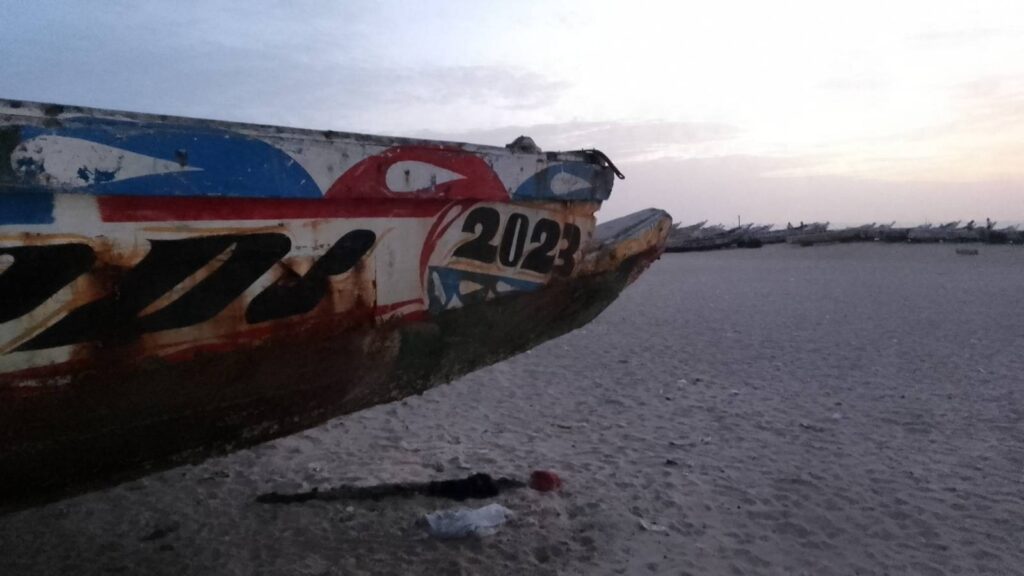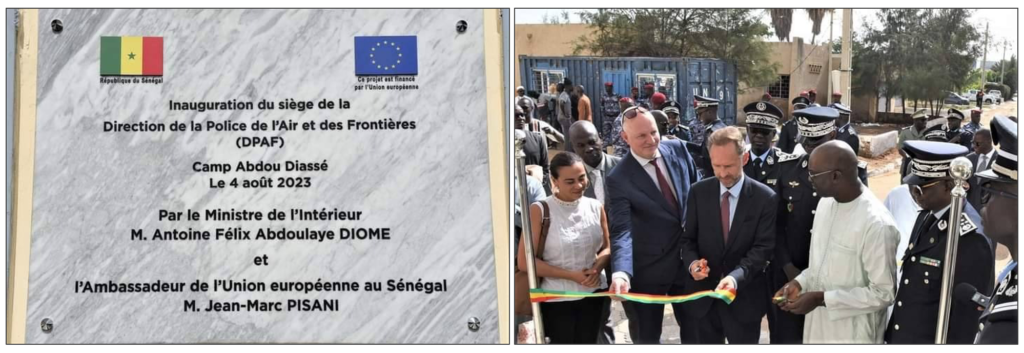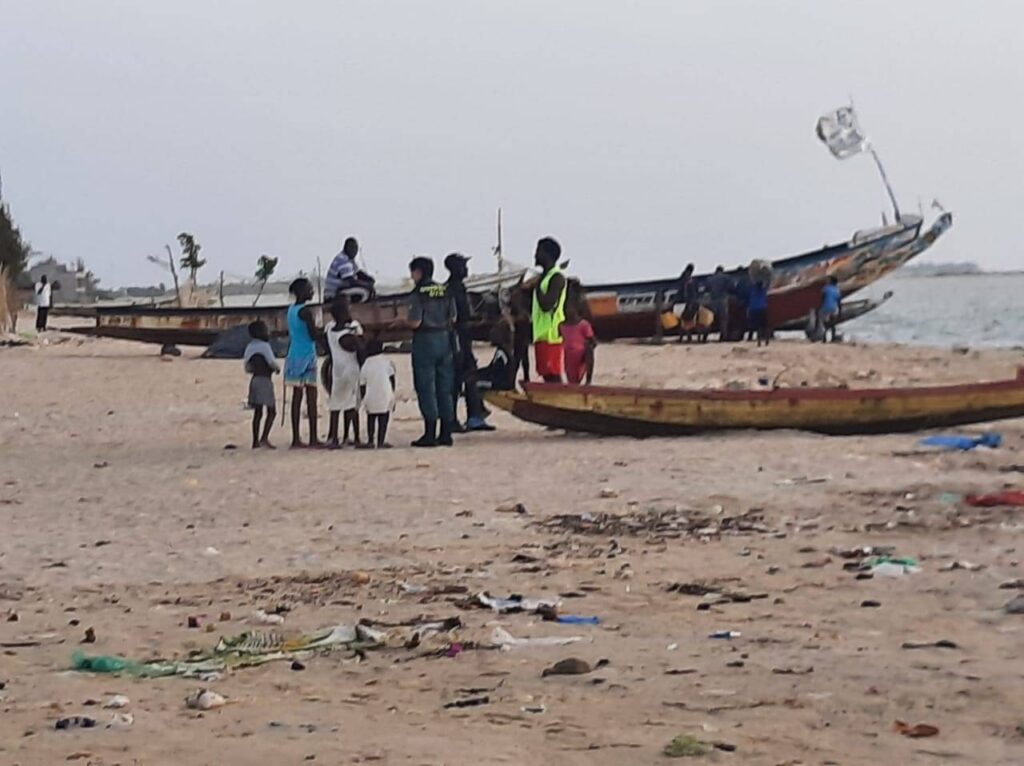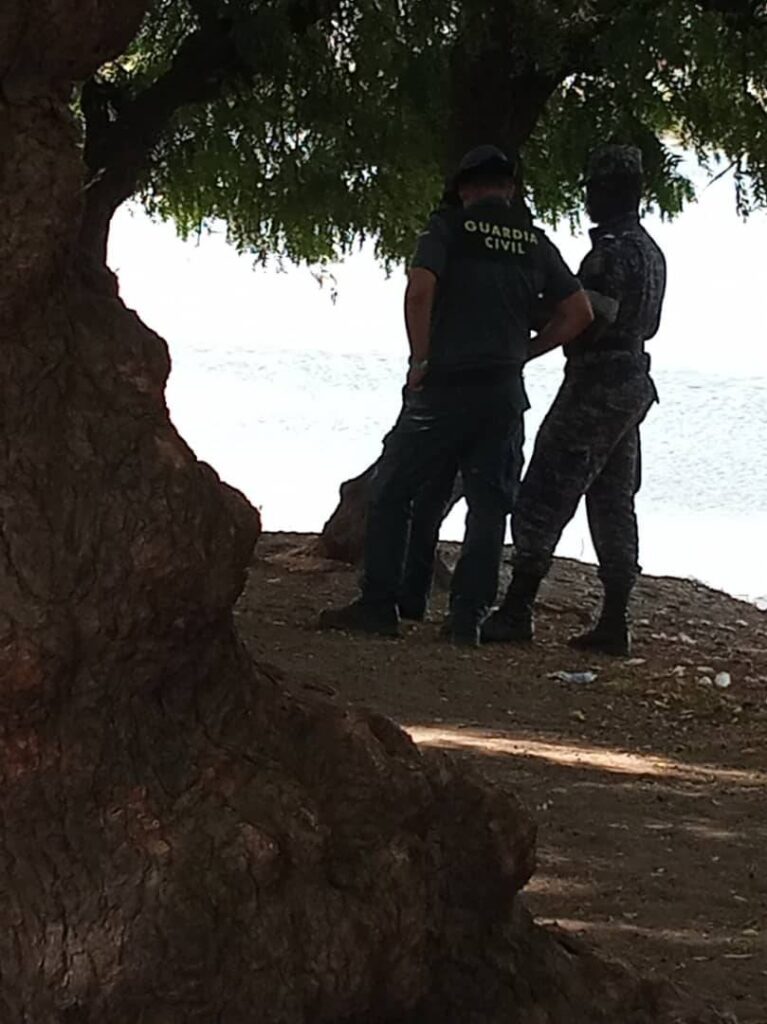
Source : AP Dakar
The Atlantic route is again making headlines, with a sharp increase in crossings in recent weeks: around 4,000 people arrived in the Canaries in September and over 6,000 people in the first two weeks of October. But the underlying phenomenon has already taken shape since June: nowadays, most of the boats on the Atlantic route depart from Senegal. During the summer of 2023, two-thirds of the boat trips were made in fisherboats from Senegal (the so-called “cayucos”), and only a third of departures came from Morocco and the Western Sahara.
“Lately, we’ve been reliving a situation in Senegal which reminds us of the ‘Barça ou Barsakh’ phenomenon in 2006 – 2008 and in 2020/2021. The slogan ‘Barça or Barsakh’, which means ‘either you get to Barcelona or you die’, reflects the utmost despair of people on the move,” explains Saliou Diouf of Boza Fii, a Senegalese organisation fighting for freedom of movement.
The Senegalese population, and especially young people, are faced with an impossible dilemma: to stay and die slowly in that misery, or to leave in the hope of having some chance of a dignified life in Europe. The deep economic crisis (the breakdown of livelihoods due to overfishing in Senegalese waters and the consequences of climate change) is compounded by the injustice of Europe’s visa policy, which are virtually impossible to obtain. The political crisis in Senegal makes the situation catastrophic: many demonstrators are being abused and arbitrarily imprisoned, and there have even been deaths. This is driving young people to leave the country, using even the riskiest means of transport. We express our anger at this situation and our grief for the hundreds of people who died at sea this summer.
However, the Senegalese authorities are not at all committed to supporting the population, but instead reproduce the European rhetoric against migration, which aims to criminalise and repress freedom of movement. The Senegalese government has set up a body called CILEC (Interministerial Committee to Combat Illegal Migration), which is made up largely of senior members of the Senegalese army. On 27 July, the government adopted the SNLMI action plan (National Strategy to Combat Irregular Migration in Senegal), which involves tracking down so-called smugglers who are being treated as human traffickers. On 4 August 2023, representatives of the European Union and the Senegalese government inaugurated a large building to house the DPAF (Air and Border Police Division). All these measures are being taken in the midst of a political crisis in the country: this is a disgrace and a lack of respect for the population.

Inauguration of the new Air and Border Police Division building, with European representatives, Dakar, 4 August 2023. Source: AP Dakar
In recent months, there has been a series of acts of repression that show how the Senegalese government is seeking to intimidate the entire population, and especially the migrant population. The authorities are using the army, gendarmerie and police to stifle any situation that might lead to controversy in the country, as illustrated by the following list:
- On 10 July, 101 people set off from Fass Boye, in Thies. More than a month later, 38 survivors were found 275km away from Cape Verde, but only 7 bodies were recovered. When the Senegalese government decided to repatriate only the survivors and leave the dead in Cape Verde, the people of Fass Boye demonstrated against this decision. After the demonstrations, the gendarmerie returned at 3 a.m. to enter the houses, grabbed the demonstrators, beat them up and took them to the police station.
- On the night of 9 to 10 August, on the beach at Diokoul Kaw in the Rufisque neighbourhood of Dakar, around a hundred young Senegalese were preparing to leave for the Canary Islands. The group was waiting for the fisherboat on the seafront at around 2am. The Senegalese police spotted the group and after firing into the air to disperse the crowd, a gendarmerie officer opened fire on the crowd as they made their way back to the houses. Unfortunately, a young boy was hit from behind by a bullet and died instantly. Until now, no further action has been taken on this case.
- A group of 184 people left Senegal on 20 August and were intercepted by the Spanish Guardia Civil in Mauritanian waters, which then carried out a pushback. The group was handed over to the Senegalese navy on 30 August and subjected to numerous abuses by Spanish and Senegalese officials. In addition, 8 people are under investigation by the National Division for Combating Trafficking (DNLT) and are being prosecuted for criminal conspiracy, complicity in the smuggling of migrants and endangering the lives of others.
- On 18 September in Cayar, in the Thiès region, a group of people embarking for the Canary Islands were stopped by the gendarmerie while they were leaving. But the arrest ended in clashes between the gendarmes and the local population. As usual, the gendarmes arrived again later in the night to enter people’s homes, arrest them, hit them and take them to the police station.
These examples show that the government’s strategy is to sow fear by using violence in order to intimidate and dissuade the population from leaving. We denounce this policy as unjust, violent, barbaric and authoritarian.

At Gandiol, region of St-Louis, Guardia Civil officers are surveilling the beach. Source: AP Dakar

In the past years, Senegal has established close cooperation with Guardia Civil and FRONTEX. Source: AP Dakar
We are outraged by the mediocrity of our governments, but we continue to see our brothers and sisters dying at sea. In these days, departures from Senegal are making international media headlines, but the problems date back decades, if not centuries: they are rooted in the capitalist exploitation of our resources, the neo-colonial and murderous policies of the European Union and the incompetence of our governments.